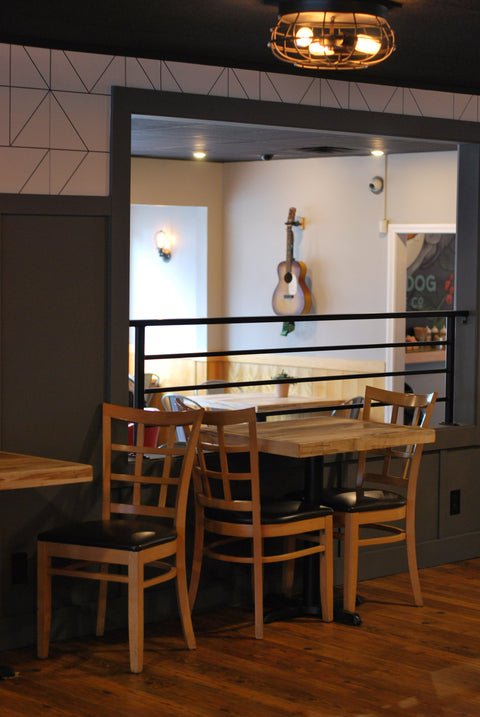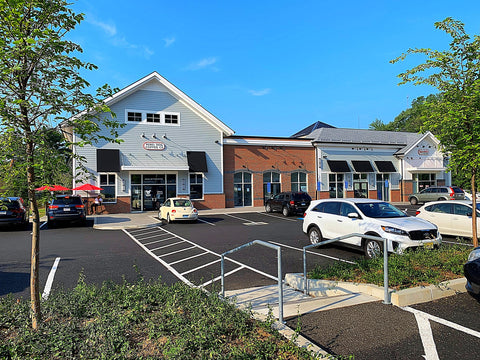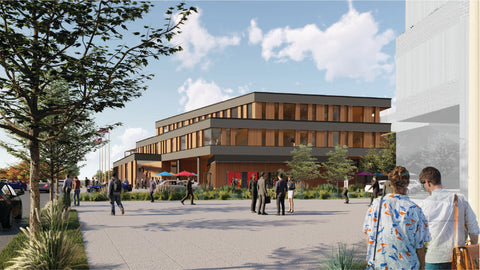Origin Explorer Bundle Includes
This delicious coffee is a prime example of the care and attention to detail put into sorting and processing by the Sookoo team and their producer partners.
Roast Level: Light
Tasting Notes: Blueberry Muffin, Passion Fruit, Green Tea
Varieties: JARC, Local Landraces
Growing Altitude: 1,100-2,300 masl
Processing Method: Natural
Sookoo Coffee is a family owned company that produces and exports organic specialty and traceable coffee in the high altitudes and semi-forest of Guji, located in the South of Oromia Mountains of Ethiopia. The Guji region is home to top award-winning coffees both within Ethiopia and internationally.
Local farmers deliver fully ripened coffee cherries to Sookoo's cherry collection centers or washing/drying stations. Producers must harvest coffee cherries when they are fully ripe, as the ripest cherries yield beans with more sugar, which gives coffee beans a complex cup profile. It requires concentration, attention to detail, and commitment from the farmers.
Sookoo specializes in only natural processed coffees, and they work in three woredas (Shakkisso, Uraga, and Haro wolabo) of East Guji. They focus on working with small groups and providing education for the farmers – teaching good agricultural practices and best picking practices (only ripe red cherries). The freshly harvested cherries are delivered to the cherry collection centers or washing/drying stations where they go through intensive sorting to separate over and under-ripe fruit out from the lots. Then the coffee is immediately put out onto a raised African bed while it is still fresh to protect fermentation. Total drying times are around 21 – 28 days. The strict attention to detail here in the drying stage is what separates Ethiopia's, and especially Sookoo's, coffees from the rest of the world.
Because of the nature of drying the fruit around the seed, coffee processed this way is inherently packed with intense fruit flavors, but because of their specific protocols, coffees from Sookoo are particularly crisp and clean. You get all of the big fruit juice flavors and none of the murky over-fermented or over-ripe fruit flavors that can sometimes accompany a naturally processed coffee.
The body of their micro-lots are silky (mouth coating but not too heavy) and the acidity is playful and juicy.
A perfect coffee for fair season and cooler months, this medium roast is smooth and sweet, with just a bit of nutty earthiness.
Roast Level: Medium
Tasting Notes: Old Fashioned Donut, Toffee, Barley
Varieties: Castillo, Caturra, Colombia
Growing Altitude: 2,100 masl
Processing Method: Washed
Sourced from the elevated terrains of Buesaco Nariño in southern Colombia, this exquisite coffee is cultivated at over 2,000 meters above sea level on average. Buesaco's unique geographic and climatic conditions, characterized by volcanic soil and an average temperature of 18.6 °C, provide an optimal environment for producing coffee with distinct mild taste, high acidity, and sweet notes.
The region’s coffee cultivation heritage dates back to the 18th century, growing over time to become an integral part of the local cultural, economic, and social fabric. With its first international exposure in the early 20th century, Buesaco Nariño's coffee has since been celebrated in the specialty coffee segment worldwide for its unparalleled quality, cultivated in the unique environmental conditions of the region.
As with many coffee origins, it is believed that coffee was first brought to Colombia by priests, arriving, perhaps, within a decade or two after coffee first came to the Americas via the Caribbean in the first half of the 17th century. It was likely a garden crop grown for local consumption and barter for decades. Unlike other coffee regions, we have the story of a priest named Francisco Romero, who could be called the father of commercial coffee cultivation in Colombia. The folkloric tale goes that in the early 1800’s, Father Francisco, hearing confessions in the north eastern town of Salazar de la Palmas, assigned planting coffee to his parishioners as penance for their sins. The Archbishop of Colombia heard about this and ordered all priests to adopt the practice. Commercial production of coffee expanded quickly, moving into regions where the growing conditions were ideal.
Even though it’s been 4,000 years, the soil resulting from the last major eruption of Tolima is still considered “young soil,” filled with nutrients that are no longer found at the same levels in old soil. There is a long list of elements on offer in volcanic soil that are fading or absent in other soils, such as high levels of potassium and nitrogen. Also present is something called “Boron,” which arrived from outer space a long time ago, and is important to cell walls, the creation of enzymes, and the production of flowers and fruit, meaning Boron contributes to yield. Beyond the nutrients, the structure of volcanic soil is also beneficial to coffee growing. It can soak up and hold moisture while, at the same time, facilitate good drainage so water doesn’t pool, which is not good for coffee plant roots. Coffee plants like to take a drink, then take a break. Also, volcanic soils are usually found on an incline, which also helps with drainage.
Not only is this coffee rich and flavorful, but it also directly benefits the communities and particularly the children of the families that produce this coffee through social programs at origin including kindergartens and a rural health clinic.
Roast Level: Dark
Tasting Notes: Pomegranate, Molasses, Red Grape
Varieties: Bourbon, Catuai, Pache, Anacafe 14
Growing Altitude: 1,400 - 2,000 masl
Processing Method: Natural
The region of Ayarza is a special one, landmarked by the drastic landscape and cold blue water from the Laguna de Ayarza and Laguna Azul. The lake was formed by two massive volcanos that collapsed and formed a large crater. The legends surrounding this lake are numerous like the one that says the bottom has never been found. There is a large white rock that resembles a petrified woman who didn’t follow the orders of Jesus. In short, there are simply too many good stories about Ayarza to do it justice!
Covoya Guatemala always knew the region had massive potential to produce specialty coffee, but the cups that they found were usually solid but unsurprising. Four years ago they rented a wet mill at 1,500 meters on a Rainforest Alliance certified farm. The quality coming from the washed coffee was much better than expected, and next they tried the honey and maceration processes.
For natural-processed coffees under the Blue Ayarza mark, the best cherries from small holders in the region deliver to Covoya's mill, often in their own pickup trucks. Cherry is sent to Amatitilan for drying, the coffee starts for 10 days on the patio. To finish the coffee is mechanically dried for 5-10 hours.





